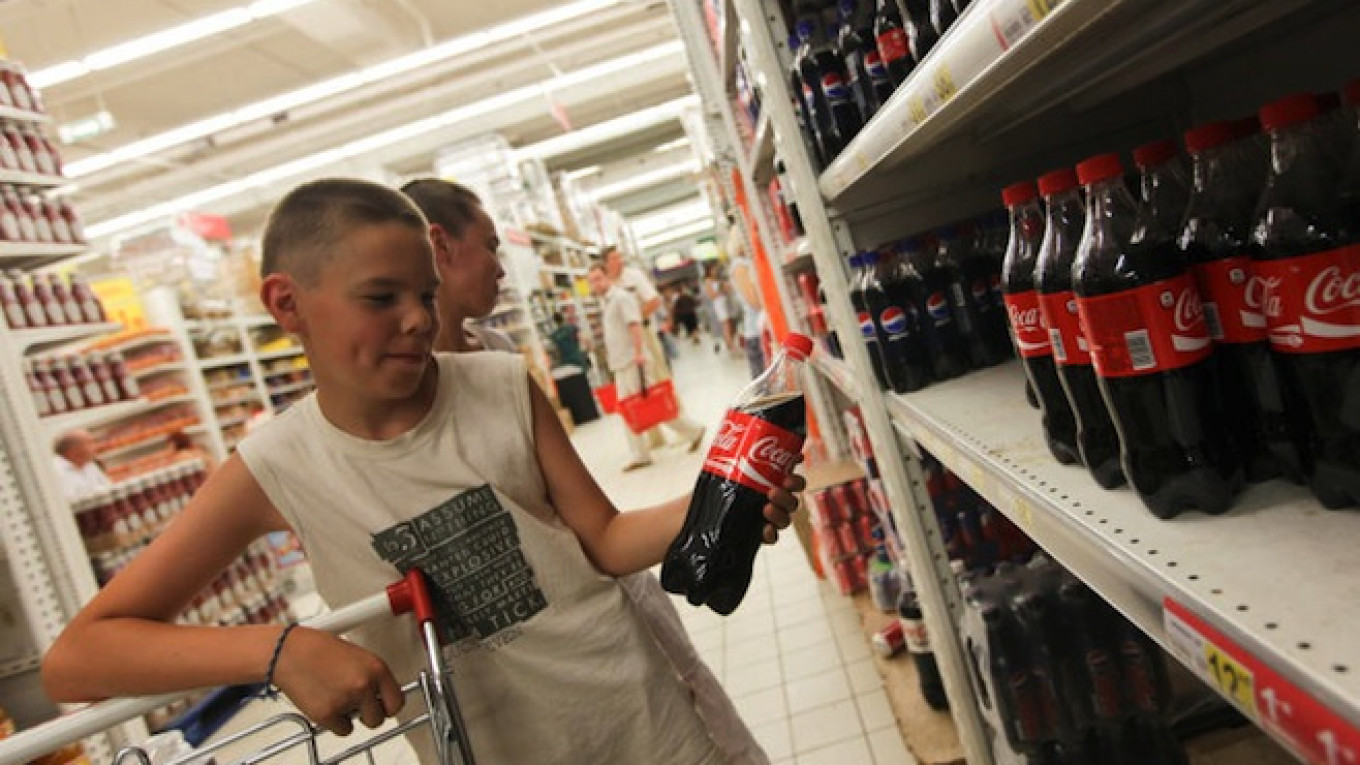Schoolchildren in Russia's Vologda region will no longer be able to pick up a can of Coke on their way to class after the local parliament banned the sale of fizzy caffeinated drinks to minors.
According to an overview of the law published Thursday on the regional legislative assembly's website, stores will now have to ask for identification when selling certain soft drinks.
The ban covers carbonated drinks containing caffeine or plant extracts, meaning it will apply to both Western soft drinks — such as Coca Cola, Dr Pepper and Mountain Dew — and domestic products such as Baikal.
The restriction does not extend to tea or coffee, the regional parliament said on its website.
In addition to the outright ban on sales of carbonated caffeine drinks to minors, the law also prohibits their sale in "children's, educational and medical institutions, as well as cultural and sports centers."
Yevgeny Korotkov, chair of the parliament's committee on economic policy and property, said the restrictions had been put in place to protect the health of minors.
"We received an expert opinion on the effects of these drinks on the body of children and adolescents, and they have a very negative impact," Korotkov was cited as saying on the regional legislative assembly website.
The restrictions were adopted in September and came into effect on Jan. 1, the parliament said.
A Message from The Moscow Times:
Dear readers,
We are facing unprecedented challenges. Russia's Prosecutor General's Office has designated The Moscow Times as an "undesirable" organization, criminalizing our work and putting our staff at risk of prosecution. This follows our earlier unjust labeling as a "foreign agent."
These actions are direct attempts to silence independent journalism in Russia. The authorities claim our work "discredits the decisions of the Russian leadership." We see things differently: we strive to provide accurate, unbiased reporting on Russia.
We, the journalists of The Moscow Times, refuse to be silenced. But to continue our work, we need your help.
Your support, no matter how small, makes a world of difference. If you can, please support us monthly starting from just $2. It's quick to set up, and every contribution makes a significant impact.
By supporting The Moscow Times, you're defending open, independent journalism in the face of repression. Thank you for standing with us.
Remind me later.






